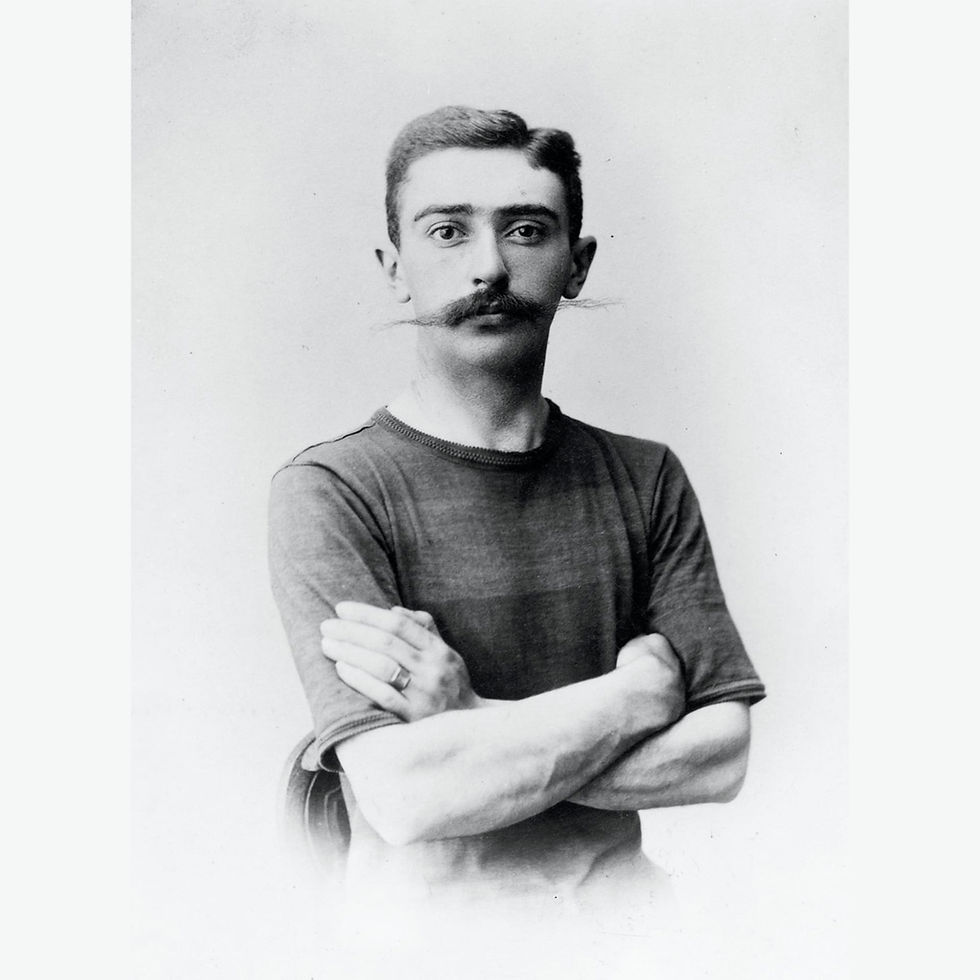The Olympic Movement: A Global Force for Unity, Excellence, and Peace
- insidetherings
- Jun 9
- 4 min read
The Olympic Games are far more than a showcase of athletic excellence. They are the heartbeat of a global movement—one that champions peace, unity, and the best of the human spirit. From their rebirth in 1896 to their present-day scale, the Olympics have evolved into a worldwide celebration of what brings us together.
The Spark That Started It All
As noted in Reigniting the Flame, it began with a bold vision. French educator Pierre de Coubertin believed that sport could shape character, bridge cultures, and even prevent war. Inspired by the ancient Greek Games, he dreamed of reviving the Olympics—not just to honor athletic achievement, but to promote peace in a fractured world.
In 1894, he founded the International Olympic Committee (IOC). Just two years later, the first modern Olympic Games were held in Athens, welcoming athletes from 14 nations. The seeds of a global movement had been planted.
More Than Medals: Olympic Values

At its core, the Olympic Movement is built on three ideals:
Excellence – Striving to be the best version of yourself, both on and off the field.
Friendship – Building connections across borders through mutual respect.
Respect – Honoring opponents, rules, and cultures in the spirit of fair play.
These values aren’t limited to athletes. They’re meant to inspire everyone—spectators, students, leaders—to pursue a higher standard in how we treat others and challenge ourselves.
The Motto That Moves the World
The Olympic motto—recently updated—captures the spirit of the Games in just a few words:
“Citius, Altius, Fortius – Communiter”
Faster, Higher, Stronger – Together
That final word, Together, was officially added in 2021. IOC President Thomas Bach proposed the change to reflect the importance of solidarity in overcoming global challenges, especially in light of the COVID-19 pandemic. He explained:
"We can only go faster, we can only aim higher, we can only become stronger by standing together — in solidarity."
In a world divided by politics and conflict, the Olympic Movement reminds us of what we can accomplish as one.
What the Olympic Movement Aims to Achieve
Led by the IOC, the Olympic Movement includes National Olympic Committees, International Sports Federations, athletes, sponsors, and fans. Its goals go far beyond organizing events:
Promoting Peace and International Understanding: Through sport, the Olympic Movement seeks to foster dialogue and reconciliation, especially in conflict-ridden regions. The Olympic Truce, inspired by the ancient Greek tradition of ekecheiria, calls for the cessation of hostilities during the Games and encourages diplomacy over division.
Encouraging Youth Development and Education: The IOC supports programs worldwide that use sport to educate and empower young people. The Youth Olympic Games, introduced in 2010, blend competition with cultural and educational elements to inspire young athletes to become ambassadors of Olympic values.
Protecting the Integrity of Sport: Through anti-doping efforts, fair play campaigns, and governance reforms, the Movement seeks to uphold the ethical standards of competition. The aim is to ensure that sport remains a meritocratic, transparent, and inspiring endeavor.
Advancing Gender Equality and Inclusion: The Olympic Movement has made significant strides in promoting equal opportunity for women and underrepresented groups, achieving gender parity in athlete participation in the 2024 Paris Olympic Games.
Promoting Sustainability and Environmental Stewardship: Recent Games have placed growing emphasis on sustainability—reducing carbon footprints, repurposing venues, and involving local communities. The IOC encourages host cities to use the Olympics as a catalyst for long-term positive change.
A Movement That Reaches Every Corner

With over 200 National Olympic Committees, the Olympic Movement is more globally represented than the United Nations. Every two years, the Games captivate billions of viewers and unite athletes from nearly every nation on Earth.
But the reach of the Olympics goes beyond the field of play:
Olympic Solidarity supports training for athletes in developing countries.
The Olympic flame travels across continents, lighting hearts and minds.
Local initiatives use Olympic ideals to encourage education, health, and community engagement.
Challenges—and Why the Movement Still Matters
Like any global institution, the Olympic Movement faces real issues: corruption scandals, political boycotts, rising costs, and environmental concerns. But its ability to reflect, adapt, and improve is what has helped it endure.
The recent inclusion of youth-driven sports like skateboarding and surfing, a stronger focus on legacy planning, and moves toward climate-neutral Games show that the Movement is evolving with the times.
Why the Olympic Movement Still Inspires

I had the chance to briefly visit one on one with President Bach in September 2024, during an IOC visit to Utah. I said to him,
"President, the reason I love the Olympic Games is it's the only event in the world I can think of that brings nations together in a peaceful and joyful matter. Most of the time, what brings people together is tragedy. But the Olympics stands as a shining example of how nations can rejoice together, cheer for one another, and have enduring relationships."
In an age of division and distraction, the Olympic Movement offers something timeless: hope. It reminds us that even in competition, there is unity. That greatness is possible through discipline and determination. That no matter where we come from, we all share the same dreams—to be seen, to be challenged, and to belong.
As President Bach put it:
“The Olympic Games are not just about medals. They are about building a better world through sport.”
Whether you're an athlete, a fan, or someone who simply believes in the power of human potential, the Olympic Movement has something to offer: inspiration, purpose, and the belief that we’re better when we go faster, climb higher, and grow stronger—together.


Comments